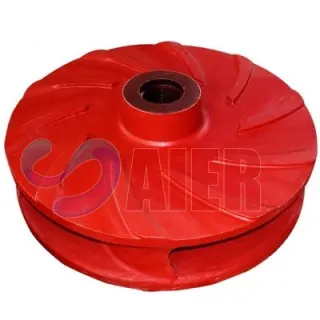Dic . 05, 2024 16:58 Back to list
Optimizing Performance of Slurry Pump Impellers for Efficient Fluid Handling Systems
Understanding Slurry Pump Impellers
In industrial applications where solid particles are suspended in liquid, slurry pumps play a critical role. These robust machines are designed specifically to handle abrasive and corrosive materials that other pumps may struggle with. At the heart of slurry pumps is the impeller, a vital component that directly influences the pump's efficiency and operational reliability. In this article, we will explore the functionality of slurry pump impellers, the various types available, and the factors influencing their performance.
The Functionality of Impellers in Slurry Pumps
The impeller is the rotating component of a slurry pump that imparts kinetic energy to the slurry, allowing it to be moved through the pump and into the desired discharge area. The design and efficiency of the impeller significantly affect the overall performance of the slurry pump. When the impeller rotates, it creates a low-pressure area that draws slurry into the pump from the suction side. As the impeller blades forcefully push the slurry outwards, it converts kinetic energy into pressure energy, effectively elevating the slurry to the required discharge height.
Types of Slurry Pump Impellers
Slurry pump impellers come in several designs, each suited for different types of slurry and operational requirements. The most common types include
1. Open Impellers These have no shroud covering the blades, which allows for greater flexibility in handling slurries with larger particles. However, they are susceptible to wear and tear, making them more suitable for less abrasive slurries.
2. Semi-Open Impellers These impellers have a partial shroud that provides some protection to the blades, extending their lifespan while still accommodating larger solids than fully closed designs.
3. Closed Impellers With a complete shroud around the blades, closed impellers are designed for high efficiency and are ideal for fine, less abrasive slurries. Their design reduces turbulence, maximizing energy transfer but limiting the size of solids they can handle.
slurry pump impeller

4. Vortex Impellers Used for slurries with high solids content, vortex impellers minimize the chances of clogging while efficiently moving thicker materials. Their unique design allows for the passage of larger particles while maintaining flow.
Factors Influencing Impeller Performance
Performance and efficiency of slurry pump impellers are influenced by several factors, including the following
- Material Selection The choice of material for the impeller significantly affects durability and performance. Common materials include rubber, which is resistant to corrosion and wear, and metal alloys, which provide strength and rigidity. The material should be chosen based on the specific properties of the slurry being pumped.
- Impeller Size and Design The diameter and geometry of the impeller impact the flow rate and head generated by the pump. A larger impeller can move more slurry but may require more power to operate. On the other hand, the specific design—such as the number of blades and the angle of attack—can enhance efficiency based on the application.
- Slurry Characteristics The physical properties of the slurry, including particle size, density, viscosity, and concentration, all play a role in determining the appropriate impeller type and specifications. Selecting an impeller designed for the slurry at hand is crucial for optimal performance.
- Operational Conditions The pump's operating environment, such as temperature changes and fluctuations in pressure, can influence impeller performance. Regular monitoring and adjustments may be necessary to ensure consistent efficiency under varying conditions.
Conclusion
In summary, slurry pump impellers are essential in the effective movement of abrasive and viscous materials in a range of industrial applications. Understanding the different types of impellers, the factors affecting their performance, and proper maintenance practices can significantly enhance the reliability and operational efficiency of slurry pumping systems. By making informed choices regarding impeller design and materials, industries can ensure that they meet their specific slurry handling needs while minimizing costs and downtime.
-
Top Submersible Pump Companies High Quality Manufacturers & Suppliers in China
NewsJul.08,2025
-
High Quality Seal for 5 Inch Dredge Pump Reliable China Manufacturer & Supplier
NewsJul.08,2025
-
High-Efficiency Slurry Sand Pump from Leading China Manufacturer – Durable & Reliable Solutions
NewsJul.07,2025
-
High-Quality Slurry Pump Made in China Durable Steel Mill Slurry Pump & Parts
NewsJul.07,2025
-
High Quality Excavator Dredge Pump Manufacturer & Suppliers from China – Reliable, Durable, Efficient Solutions
NewsJul.07,2025
-
Wholesale Slurry Pump Closed Impeller Supplier High Efficiency China Slurry Pump Closed Impeller
NewsJul.06,2025
